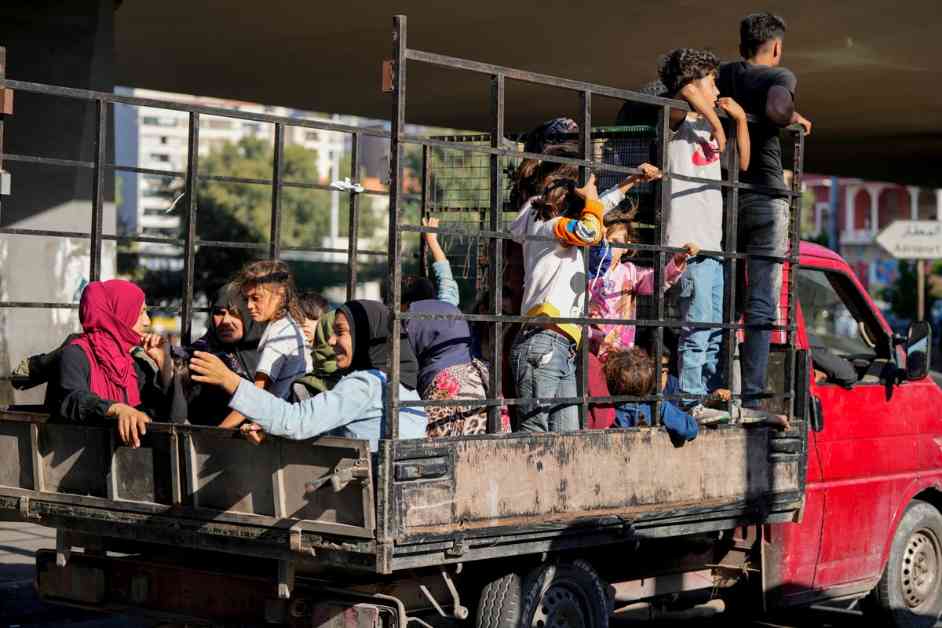Israel airstrikes on Lebanon prompted thousands of people to flee their homes and seek refuge in the city of Aley, located about 12 miles from Beirut. The airstrikes targeted Hezbollah in southern Lebanon, leading to a surge in the number of displaced individuals seeking safety in schools and other makeshift shelters.
Badr Zeidan, the district governor overseeing the relief efforts, mentioned that the number of people fleeing the bombardment continues to rise and has likely surpassed 10,000. He explained that they register the displaced individuals and then allocate them to schools or empty houses for shelter.
One resident, Nasreen, shared her harrowing journey from Qana to Aley, which took 13 hours due to heavy traffic caused by the escalating conflict. She initially dismissed reports of an escalation but decided to leave when the bombings intensified and approached closer to her home. The exhausting journey to Aley was filled with fear and uncertainty as they witnessed missiles hitting nearby villages and buildings.
The airstrikes from Israel and the subsequent rocket attacks from Hezbollah resulted in a significant death toll, with at least 558 people killed and over 1,800 injured. The majority of the casualties were unarmed civilians in their homes, according to Lebanon’s Health Ministry. The UN confirmed the deaths of two employees in the strikes, further highlighting the devastating impact of the conflict on innocent lives.
Israel has urged civilians to evacuate areas near Hezbollah sites storing weapons, emphasizing that the conflict is not with the Lebanese people but with Hezbollah. However, the escalating violence has raised concerns about the possibility of a full-scale war, with fears of an Israeli ground incursion into Lebanon looming large.
The ongoing conflict has pushed the region to the brink of war, with tensions escalating between Israel and Hezbollah. The threat of an all-out war has been exacerbated by the recent violence in Gaza, where Hamas attacks triggered a fierce Israeli response, resulting in thousands of casualties and displacements.
As families continue to seek refuge in Aley and other safe havens, the urgent need for essential supplies like food, diapers, and medicines has become apparent. The displaced individuals, like Jadi Hassan Abdallah, are grappling with fear and uncertainty about the future, with concerns about earning a livelihood and providing for their families in the midst of conflict.
The international community, including President Joe Biden, has called for a diplomatic solution to the crisis, emphasizing the importance of a ceasefire and peace negotiations. The hope is that both parties will come to the table and reach a resolution that prevents further loss of life and devastation.
In the face of mounting casualties and widespread displacement, families like Rola Saad’s are clinging to the hope for a peaceful resolution that allows them to return home and rebuild their lives. The impact of the conflict on innocent civilians underscores the urgent need for swift action to end the violence and prevent further suffering in the region.








